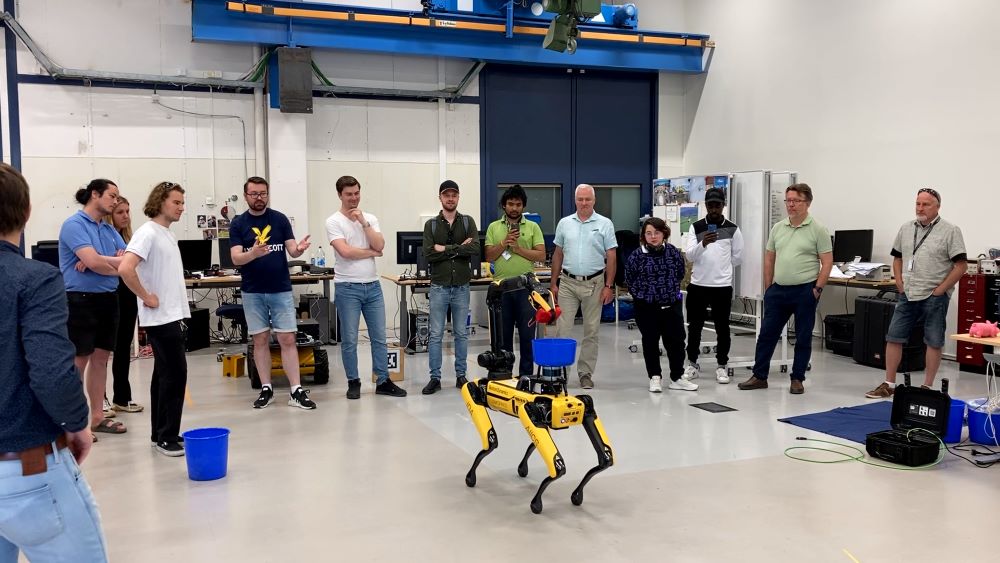
The Wallenberg AI, Autonomous Systems and Software Program (WASP) visited Ingenuity Labs on September 28, and it provided a unique opportunity for Queen’s graduate researchers, postdocs, and faculty to connect with trans-Atlantic colleagues.
The WASP group is the largest individual research program in Sweden, with the stated goal to “advance Sweden into an internationally recognized and leading position in the areas of artificial intelligence, autonomous systems and software.” Spanning five universities, Chalmers University of Technology, Linköping University, Lund University, KTH Royal Institute of Technology, and Umeå University, it also integrates other research groups and is active in everything from AI and systems research to shaping government policy and fostering industry connections.
“It’s been a privilege to work with the WASP group in bringing them to campus for a full day of presentations, workshops and networking,” says Joshua Marshall, Director at the Ingenuity Labs Research Institute. “WASP is not only a leading force in artificial intelligence and autonomous systems in Sweden, but known across Europe as leaders in the field.”
Presentations from Queen’s researchers, both from Ingenuity Labs and the School of Computing, covered robotics, AI and software focuses through the morning.
Students from both the WASP and Queen’s contingents were given an opportunity to experience each others’ research through a shared poster session over the lunch hour.
Through the afternoon, two mini-workshops allowed the Canadian and Swedish scholars to work together on two highly relevant topics. First, WASP’s Amy Loutfi and Ingenuity Labs’ Joshua Marshall moderated a session on how robotics and ML technology can help support UN Sustainable Development Goals. Following that, Queen’s Juergen Dingel and WASP’s Christian Berger moderated a workshop on the provocative topic “A.I.: Friend or Foe?”
Finally, a dinner in the Rose Commons gave participants an opportunity to network and share ideas.
“Engineering education is changing, and our students should be rooted in a range of ways of thinking and worldviews that encourage an international perspective,” Marshall says. “These kinds of international linkages are vital to ensuring we’re giving our students, and our researchers, the kind of access to global leaders that we need to ensure that Ingenuity Labs remains a globally recognized centre for AI and robotics research.”